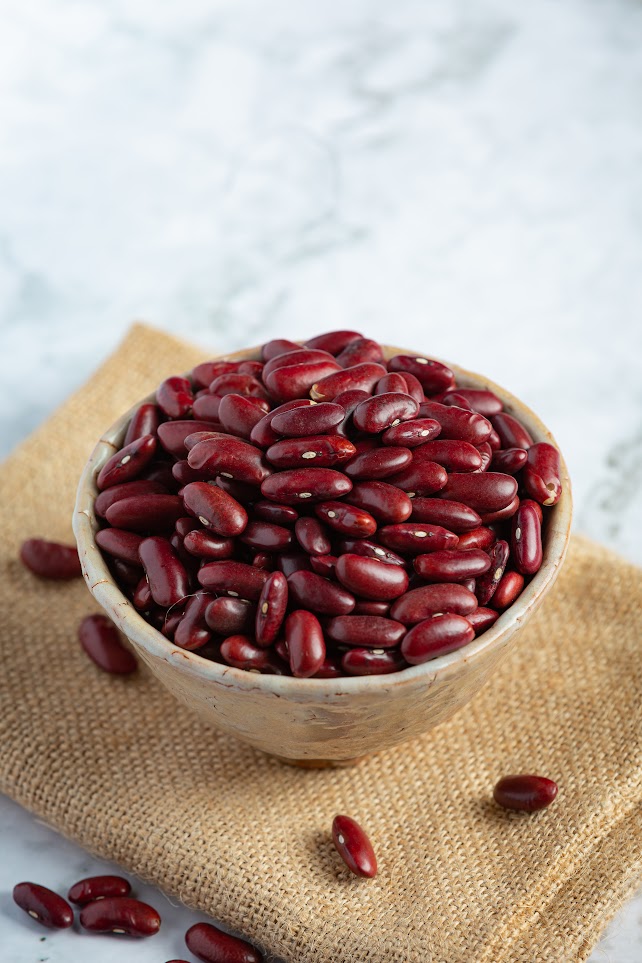Maintaining a healthy heart is a critical aspect of overall well-being. One of the key factors in heart health is managing cholesterol levels. High cholesterol can lead to the development of atherosclerosis, a condition in which fatty deposits accumulate in the arteries, restricting blood flow and increasing the risk of heart disease.
While medication can help control cholesterol, a balanced diet is a powerful ally in the fight against heart disease. In this context, kidney beans, a common legume found in many cuisines worldwide, play a significant role in promoting heart health.
The Cholesterol Conundrum
Before delving into the heart-healthy benefits of kidney beans, it’s essential to understand cholesterol. Cholesterol is a waxy, fat-like substance that the body uses to build cell membranes and produce hormones. However, not all cholesterol is created equal. There are two main types: low-density lipoprotein (LDL) and high-density lipoprotein (HDL).
LDL Cholesterol: Often referred to as “bad” cholesterol, LDL cholesterol can build up on the walls of arteries, forming plaques. These plaques can narrow and block blood flow, leading to heart disease.
HDL Cholesterol: Known as “good” cholesterol, HDL cholesterol helps remove LDL cholesterol from the bloodstream, preventing the buildup of plaques.
A balanced diet and lifestyle can help maintain the right cholesterol balance. One dietary approach is the inclusion of kidney beans, which have been linked to improved heart health in various ways.
Kidney Beans and Fiber
Kidney beans are an excellent source of dietary fiber. Fiber is known for its heart-healthy properties, including its ability to lower LDL cholesterol levels. Soluble fiber, in particular, binds to cholesterol molecules in the digestive tract and helps eliminate them from the body. This action reduces the overall levels of LDL cholesterol circulating in the bloodstream, decreasing the risk of atherosclerosis and heart disease.
Phytonutrients in Kidney Beans
Kidney beans are rich in phytonutrients, which are naturally occurring compounds in plants that have various health benefits. One of the key phytonutrients found in kidney beans is flavonoids. These compounds have antioxidant properties, which means they can help reduce oxidative stress and inflammation in the body.
Oxidative stress and inflammation are known contributors to heart disease. By reducing these factors, kidney beans can help protect the cardiovascular system and prevent the development of atherosclerosis.
Protein and Heart Health
Kidney beans are also a source of plant-based protein. They can be an excellent alternative to red meat, which is often high in saturated fat and linked to increased cholesterol levels. By incorporating kidney beans into the diet, individuals can reduce their consumption of high-cholesterol foods while still meeting their protein needs.
Regulating Blood Sugar
Another significant advantage of kidney beans is their ability to help regulate blood sugar levels. High blood sugar can lead to diabetes, which is a risk factor for heart disease. By stabilizing blood sugar, kidney beans contribute to overall heart health.
Incorporating Kidney Beans Into Your Diet
While kidney beans offer a multitude of heart-healthy benefits, it’s important to prepare and consume them in a healthy manner. Here are some tips on incorporating kidney beans into your diet:
Salads: Kidney beans can be added to salads for an extra boost of protein and fiber. Combine them with a variety of colorful vegetables for a nutrient-rich meal.
Stews and Soups: Kidney beans are a classic ingredient in stews and soups. Their earthy flavor and hearty texture make them a perfect addition to these dishes.
Chili: Kidney beans are a staple in chili recipes. Try making a vegetarian chili using kidney beans as a meat substitute for a heart-healthy option.
Sides: Kidney beans can be a side dish on their own. Simply season and sauté them with your favorite herbs and spices.
Bean Burgers: Create homemade bean burgers using kidney beans, breadcrumbs, and flavorful seasonings. These make for a delicious, heart-healthy alternative to traditional beef burgers.
A Final Word
A heart-healthy diet plays a crucial role in reducing the risk of heart disease, and kidney beans are a valuable addition to such a diet. Their fiber content, phytonutrients, and protein contribute to lower cholesterol levels, improved blood sugar regulation, and overall cardiovascular health. By embracing kidney beans as a part of your regular meals, you take a proactive step toward a healthier heart and a healthier you. Remember to consult with a healthcare professional or registered dietitian before making significant dietary changes, especially if you have existing health conditions or concerns.





